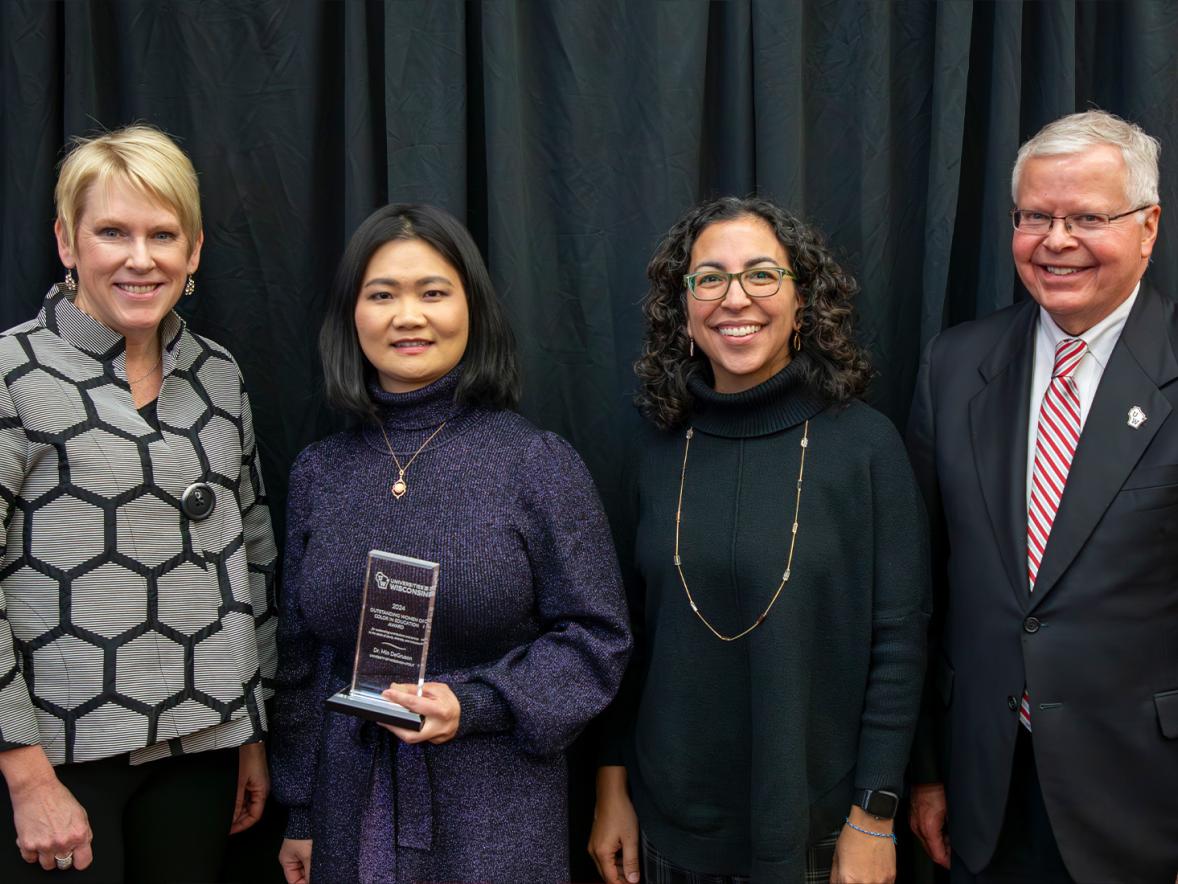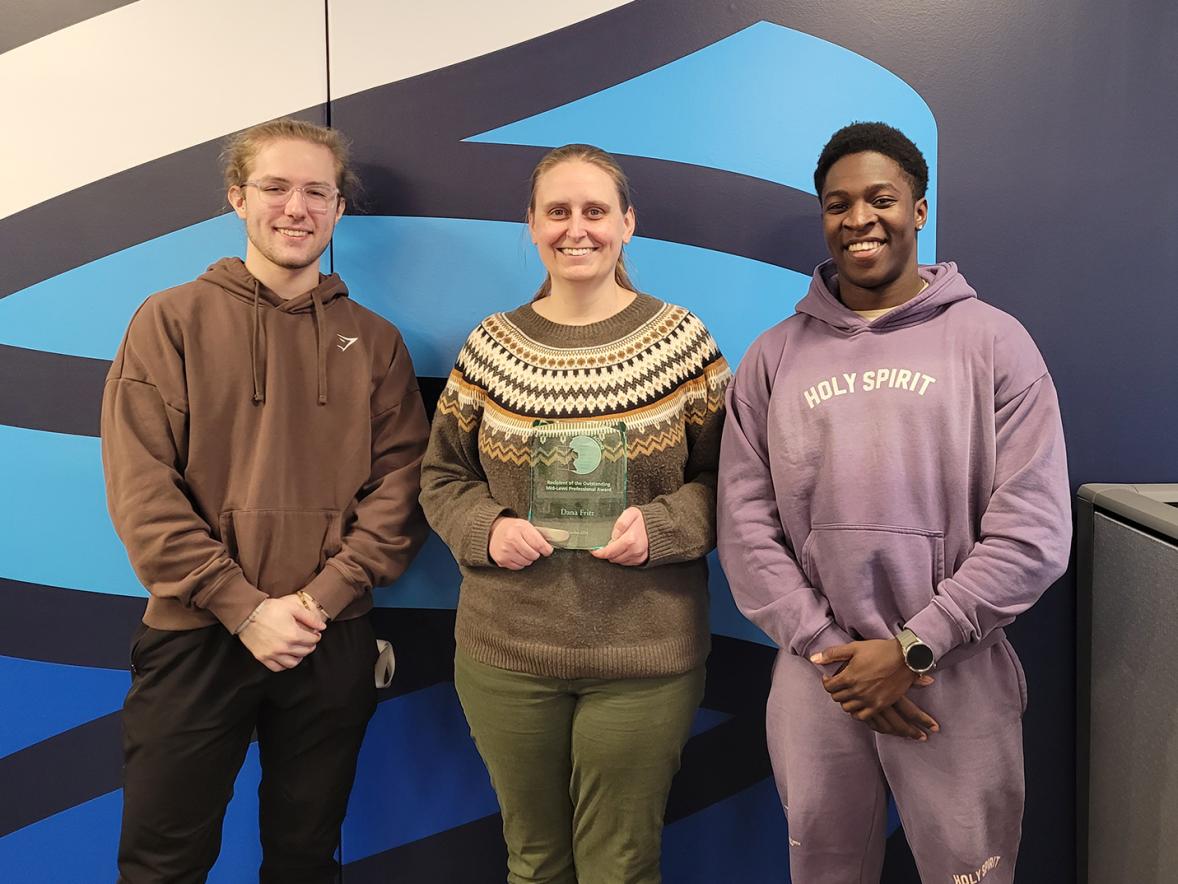A powerful weapon, hopefully the knockout punch, has arrived in the yearlong battle against COVID-19: vaccines.
Now, it’s up to individuals to do their part and get vaccinated when the opportunity arises, said two health care professionals and a University of Wisconsin-Stout administrator during a recent online panel discussion, titled Calling All the Shots.
“The benefits of receiving the vaccine are potentially enormous. One of the exciting things is how beautifully effective they are. It’s jaw-dropping,” said Dr. Alex Hall, a biology instructor and UW-Stout staff physician.
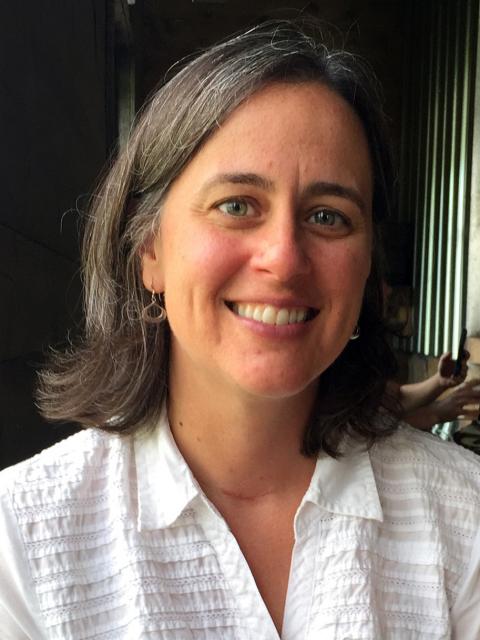
The Pfizer and Moderna vaccines are more than 90% effective at preventing illness from COVID after two shots, and the Johnson & Johnson vaccine is 72% effective with one shot. Hall compared those rates to the effectiveness of flu shots, typically 50%.
“In the trials (for the vaccines), there were zero hospitalizations and zero deaths, so they’re 100% effective against the things we’re most worried about,” Hall said.
Hall, along with Dunn County Health Department Director KT Gallagher and UW-Stout Dean of Students Sandi Scott, answered questions from students and staff during the discussion.
One of the event’s goals was to allay fears about getting the vaccine and address any misconceptions.
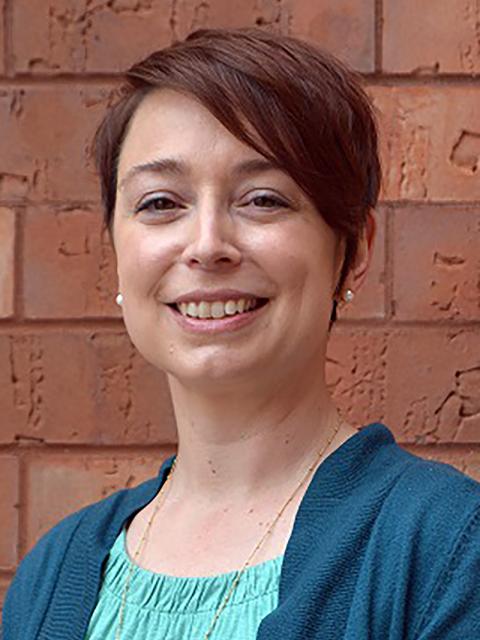
Gallagher said each of the vaccines can be trusted. They had large test populations, ranging from 28,000 to 40,000 people. Vaccines typically are produced after testing, but COVID vaccine production took place during testing because of the emergency situation. They were ready to go when data showed they were safe and effective.
When enough people are vaccinated or have been infected, 75% to 80%, the immediate threat of the virus should begin to disappear, ending the pandemic and allowing people to gather again and mostly resume normal activities. Those who have recovered from the disease also are encouraged to get the vaccine because immunity wears off faster after infection than with inoculation.
“This is our off ramp. We get back to normal-ish with herd or community immunity,” Gallagher said.
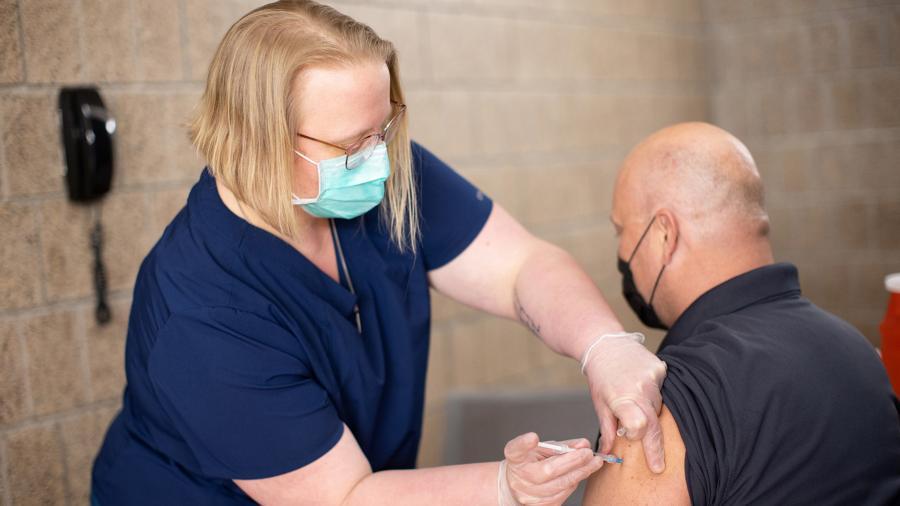
Students encouraged to get the shot
Scott encouraged students to get vaccinated. The shot could be available to them as part of the general population as early as May 1. The spring semester at UW-Stout, with about 50% in-person classes, ends in mid-May.
In the fall, UW-Stout hopes to return to in-person classes and campus activities, meaning that vaccination progress in all populations over the spring and summer is critical.
“The more students get vaccinated, the greater the likelihood that we’ll go back to what feels more normal. It depends on folks understanding how important vaccination is to reaching that goal,” Scott said.
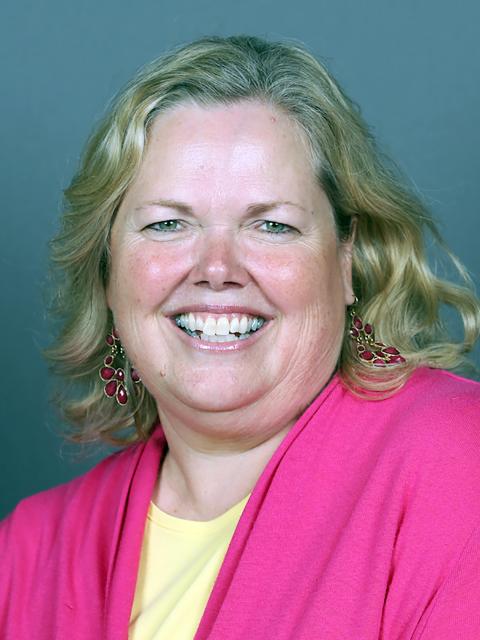
“I know how much Stout students have risen to the occasion, and we ask you to do it one more time so we can get back to the Stout we know and love,” Scott said.
Vaccination is underway for student employees, faculty and staff, although it isn’t required.
UW-Stout has been testing students and all employees regularly for the virus and will continue to do so this spring even among those who have been vaccinated, per government recommendations because it’s not yet known for certain if they can be carriers, Scott said.
Hall noted that while traditional students at UW-Stout, because of their age, are at lower risk for severe illness from COVID they should get the vaccine to boost their protection and to protect those around them, such as their professors, family and community members.
“If we decrease transmission in the community, the virus has fewer opportunities to mutate and develop new variants,” Hall said. “So, by getting as many people vaccinated as possible we also help ensure the long-term effectiveness of the vaccines we have.”
The side-effects of being vaccinated, Hall and Gallagher said, typically are much less severe than a potential infection even in young people. The health impacts are minor and short-term, such as a sore arm, headache and body aches. Severe reactions have been just five per every million, or one in 200,000.
The risk of not being vaccinated and getting infected can be much greater. Even healthy people can continue to experience headaches, brain fog and shortness of breath after they stop being able to spread the germ. “We had a young mom who was infected and couldn’t stand up and do dishes 14 days after onset,” Gallagher said.
Because it’s a new virus, researchers don’t know how long vaccines will be effective against COVID-19 and its variants, but it could be up to one year and possibly longer.
The supply of vaccine is expected to continue to grow in Wisconsin and around the U.S. “Getting those doses into arms will really help slow the spread,” Gallagher said.
“It’s really exciting that we can prevent illness and death,” Hall said.
###





